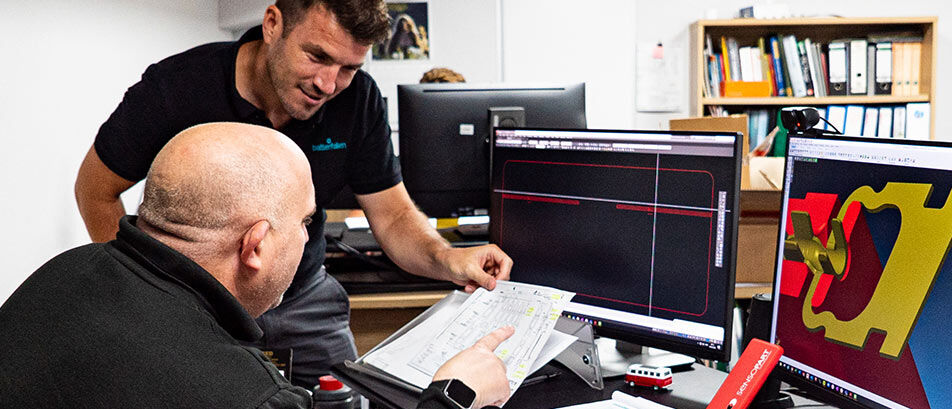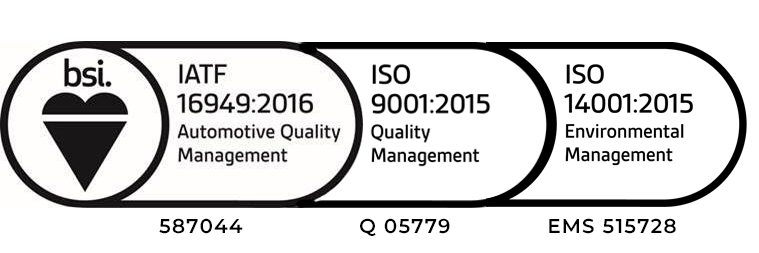Design For Manufacturability (DFM)
Critical Importance of DFM for Stamping and Plating
Optimal design for manufacturability is always important – and absolutely essential in the high-volume production of stamped/plated components.
Details matter. When you have subcontracted the manufacture of millions of parts a month, even the smallest inefficiencies in design or tooling can multiply into significant costs and/or delays. They all add up.
Getting expert technical DFM advice from experienced stamping and plating specialist Batten & Allen optimises quality, reduces costs and shortens time to market.
DFM makes it quicker, easier and more cost-effective to stamp and plate components at scale – while simultaneously enhancing quality and consistency.
Start DFM As Soon As Possible
For the best results, implement DFM as early as possible in the design process.
There’s nothing more frustrating than being told of a cost or time saving that you could have had – but will now lose – because you unwittingly committed to a design feature that now cannot be changed.
Five Key Benefits of DFM
1. Superior Quality
Tolerances are achievable and realistic for the required process. DFM reduces the likelihood of defects caused by excessively tight tolerances or other issues.
This helps to ensure consistency – reducing variation and increasing first-pass yield.
2. Lower Tooling Costs
Fewer intricate features means simpler and more cost-effective tools (and tool wear may be minimised). Toolmakers can design with wear, stress points and maintenance in mind.
This extends the life of punches, dies and inserts. Proper corner radii, punch clearances and material specifications all help to reduce wear and tear.
3. Material
Usage
Material usage is optimised
4. Lower operating costs
Cycle times are kept as short as possible (saving energy).
Fewer machine hours, fewer tool changes, less downtime.
5. Secondary operations
Such as deburring, plating and forming
- are reduced or integrated for maximum efficiency.
Optimised Production: DFM In Action
Anticipating potential issues such as cracking, distortion and poor tolerances early on helps to avoid rework, tooling downtime or non-conforming parts.
Prototypes and production runs are quicker to launch when fewer tweaks are needed post-design.
You avoid delays caused by tooling rework or unexpected manufacturability issues during the sampling or Production Part Approval Process (PPAP).
Ultimately, a reassuringly dependable DFM process means fewer surprises once production ramps up.
Energy-efficient processes and lower levels of material usage help you to meet direct and supply-chain environmental targets.
Designing lighter parts is also a key benefit for sectors such as automotive and aerospace, in which fuel/energy efficiency is vital.

10 Key DFM/Design Questions
How can your design be optimised to enhance product quality and manufacturing efficiency?
What kind of plating will you require?
How will your products be packaged? Reels, blister packs, loose strips?
What is the lead time?
What is your budget?
Case Study
Precision tooling excellence: from prototype to production
Dive into Batten & Allen's journey of mastering tooling design, ensuring reliability at every stage. Our in-house capabilities, from advanced wire erosion to state-of-the-art machining centers, showcase our commitment to delivering high-quality components efficiently.
Learn how our meticulous design process, combined with our expertise in stamping and plating, offers unparalleled precision and cost-effectiveness.
Read the Full Case Study on Tooling DesignNews and insights
Everything about the market, Batten & Allen and the services we offer to give you the competitive edge.
2 min read
New Partnership to Meet Growing Demand for Lead Frames in North America
Batten & Allen: Feb 19, 2026
2 min read
New ‘Tube Map’ Online Resource For Stamped/Plated Components
Batten & Allen: Aug 29, 2025
Infographic: Batten & Allen's Turnkey Process From Concept to Delivery
Batten & Allen: Jan 13, 2025
Embark on a Precision Journey
Discover the synergy of precision, technology, and collaboration with Batten&Allen.
Talk to an expert






